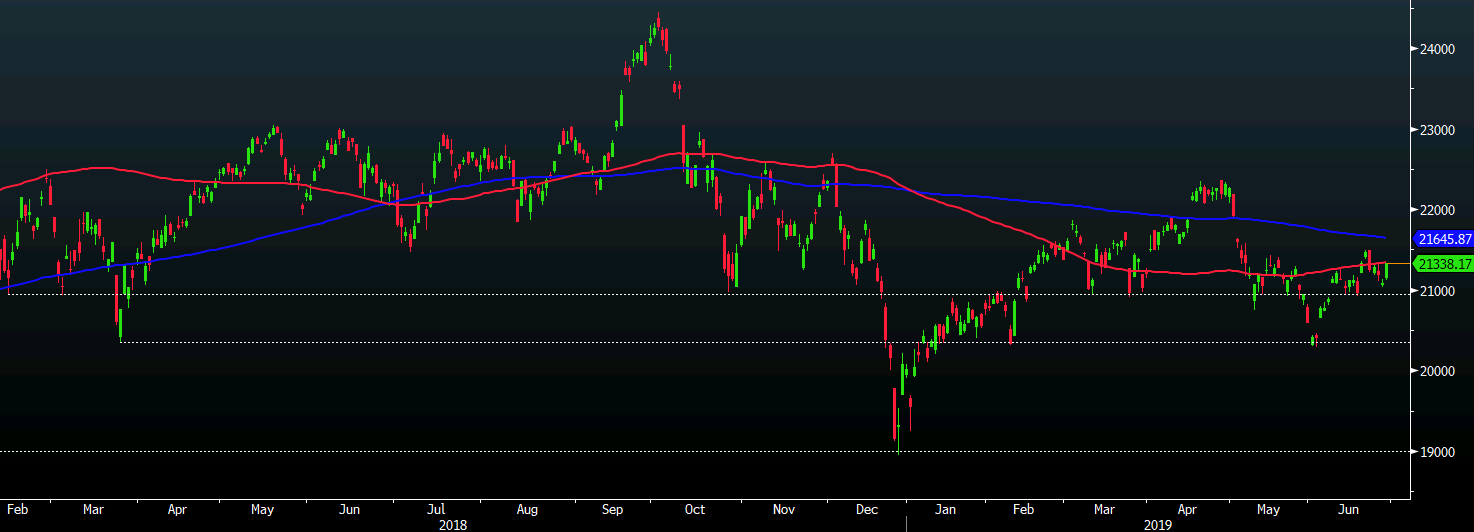The more positive vibes carry over to Europe in early trades
- German DAX futures +0.4%
- French CAC 40 futures +0.3%
- UK FTSE futures +0.2%

After a big move like yesterday, emotions naturally are stronger. On days like today – the day after, the propensity to trade in response to our P&L is much greater than usual.
On one level, the psychological backdrop of days like this is that it is all too easy to slip into trading our P&L, and not trade the market. I say one level, because there are deeper levels, but that’s beyond the scope of my blog…those deeper levels are more individual to each trader.
But a good question to ask yourself: no matter what your deeper psychological issues:
How much of what I’m doing or contemplating of doing right now is a response to my P&L?
I know in my own trading, and I see this in my clients as well, the more honest we are with that self-directed question, usually the better we trade. We should trade the market, not our P&L.
If you catch yourself trading your P&L more than the market, consider my Advanced Course, designed to address problems like this that all traders face. It is ‘heavy duty’ trading psychology with a lot of actionable steps to improve your performance. It’s for traders who are serious about improving. And if you haven’t already, sign up for my free email newsletter that gives you professional trading psychology tips.
Everyone knows that chasing price is usually not beneficial, we either end up catching the move too late, or we get poor trade location, which makes it more difficult to manage the trade.
However, there are other forms of chasing that are just as common, maybe more common, and just as counter-productive. As a trading psychologist I see these all the time.
Traders who are not profitable are often too quick to chase after new set-ups and indicators, or a different chat room, if that’s your thing. Obviously, we need to have a trading edge, whether it is from the statistical perspective of a positive expectancy, or simply the confidence in a particular discretionary strategy such as tape reading, following order flow, market profile, etc.
Chasing a trade is the fear of missing out. The fear of missing out is associated with various emotions, including regret. In my work with traders and in my own trading, I’ve seen the incredible power of regret. There’s a lot of talk about fear and greed in trading, but the power of regret is often overlooked. Some of my own worst trades, and those of my clients, often have a ‘regret from missing a prior opportunity’ component. When I finally finish my book on the psychology of financial risk taking, I will include much about this overlooked but very powerful emotion.
Somewhat related to chasing a trade, is impulse trading. They both have in common the underlying feeling of the fear of missing out. It’s tempting for me to talk about impulse trading here, but it really deserves its own piece.




